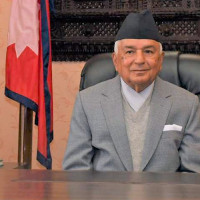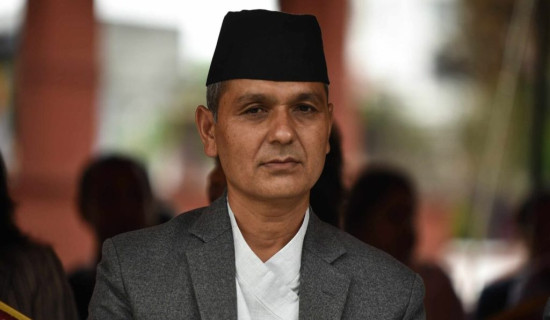- Thursday, 19 February 2026
Peril Of Fake Narratives
These days, people on social media tend to hide someone's faults while also exaggerating things that never even happened. One person makes an accusation, another admits to it, and suddenly, society itself feels polluted. Truth gets buried under noise, and half-truths often become louder than facts. In Nepal, it's this unsaid assumption that wealth equals corruption. The moment one becomes successful, people immediately question how they earned their money. Did they bribe? Did they exploit others? Did they steal opportunities that belonged to someone else?
Success is often viewed with suspicion, and people often forget all the genuine hard work they actually did to reach on top. Meanwhile, the moment something minor happens, it's a magnifying lens for society. That incident is always questioned and treated as a way to define someone's personality. Meanwhile, poverty is glorified as a sign of morality, as if struggling for money automatically means the person is honest. This creates a society where ambition is feared and effort is undervalued. Some get jealous of the hard-earned achievements of other people. This equals hating the thing they aspire to become. It's ironic because every step ahead is inspected and every gain is questioned, and every achievement is clouded by jealousy and hate.
Ask yourself, "Why do we assume that every successful person has stolen their way to the top?" Why do we idolize poverty as proof of honesty yet insult those who work hard and climb higher? Is this really justice? Or is this simply jealousy dressed up as morality? What first began as a peaceful protest quickly turned into looting, arson, and deadly destruction. From small neighbourhood shops to major businesses, no one was pitied. Protestors claimed, "We didn't do it, opportunists did."
Yet when it came to burning the houses of political figures, some proudly admitted their actions. Which narrative should we trust? This selective truth-telling causes confusion, erodes accountability, and polarises society even further. Hundreds of jobs vanished, investors pulled back, and Nepal’s fragile business environment took another turn. Do we really think destroying businesses brings justice? Tomorrow, if citizens dislike a politician, should they torch companies? The absurdity is undeniable.
Social media makes things even worse. Fake news spreads so quickly, not because it's true but because it gets more likes and shares. Do you know how today's people judge controversies? They idolize some random influencers or public figures online and blindly follow their statement, even if they're wrong. They do not have their own perspectives. Overnight crazes, viral videos, and trending hashtags can manipulate masses before even facts are verified. Do citizens even understand how the country functions, how the constitution works, and what actually happens behind the scenes?
Without this awareness in our heads, aren't we becoming angry masses rather than informed societies? Yes, that sudden burst of excitement feels amazing at first, but it often ends in regret. It destroys the institutions and livelihoods that took years to build. Nepal doesn't need envy masquerading as revolution. What it needs is accountability, honesty, and critical thinking. A culture where both sides of every story are heard before judgment is passed. Because if we continue to mistake jealousy for justice, we won't just burn businesses, we'll burn our own future.
















